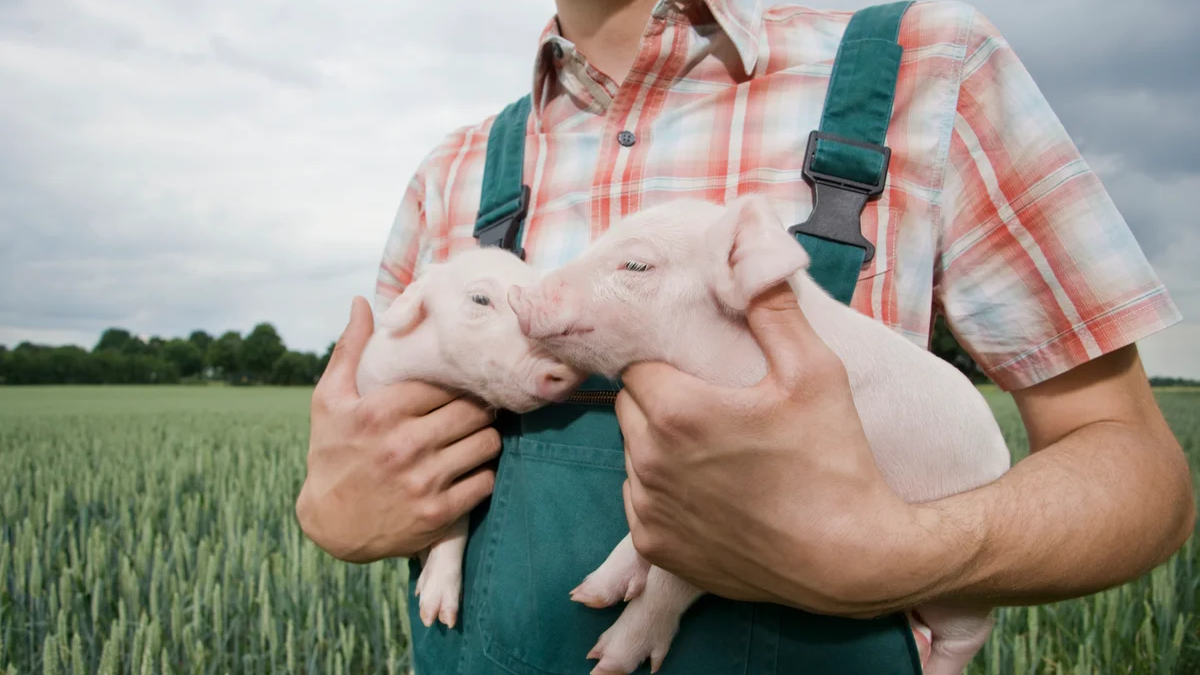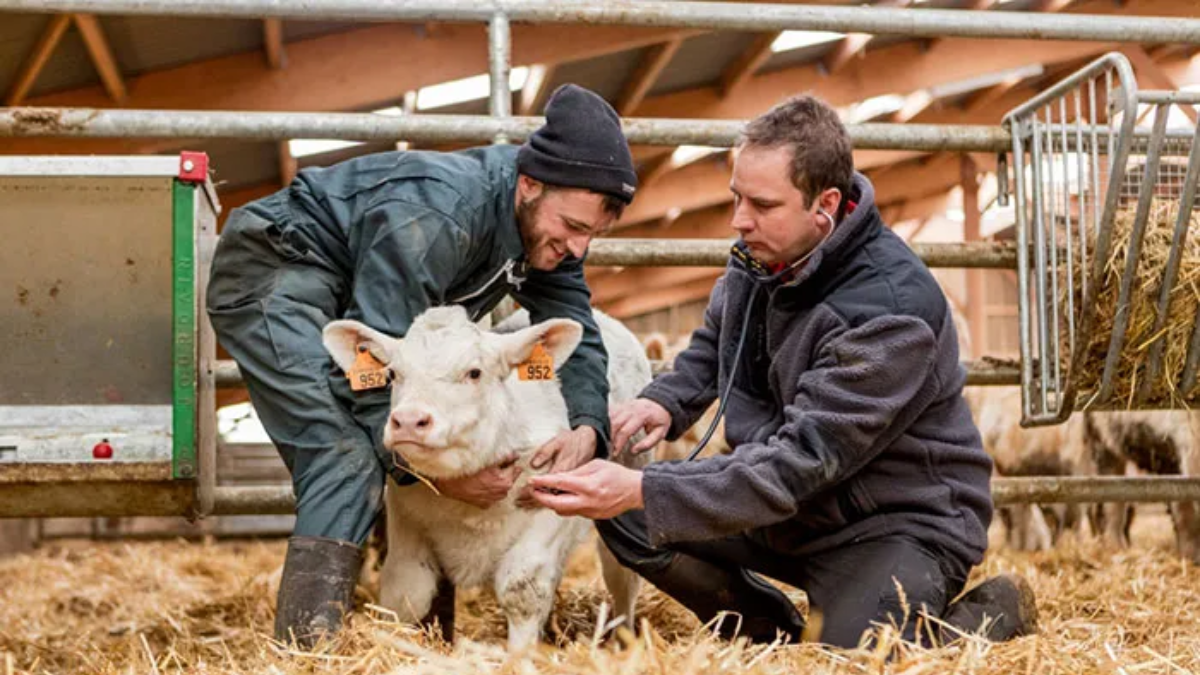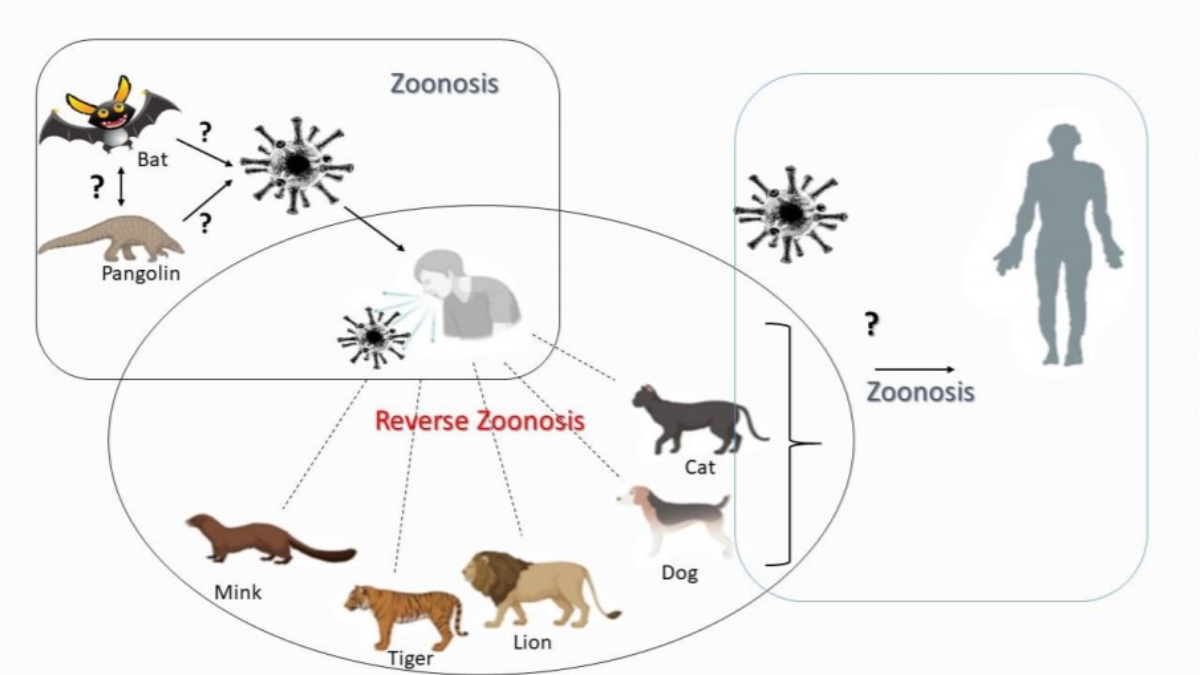
In an unprecedented revelation, the United Kingdom has recorded its first-ever case of reverse zoonosis, where a strain of human flu was found infecting a pig at a factory farm in Northern Ireland. This groundbreaking discovery was subtly documented in government disease surveillance data, but its implications have sent ripples through the scientific and public health communities.
Table of Content:-
What Is Reverse Zoonosis?
Reverse zoonosis, or anthroponosis, refers to the transmission of infectious diseases from humans to animals—the opposite of zoonotic diseases, where infections like rabies, swine flu, and bird flu typically move from animals to humans. Though zoonoses are well-documented and have triggered global health crises, the reverse flow of pathogens has remained relatively under the radar until now.
A Troubling Find in Northern Ireland
The Mirror reported that human influenza virus was identified in pigs from a Northern Irish farm already battling swine flu outbreaks. The infected animals, bred and raised in high-density, industrial farm conditions, had compromised immune systems—making them more susceptible to both zoonotic and reverse zoonotic pathogens.

While isolated cases of human-to-pig transmission have been previously documented in the United States, this is the first time such a case has emerged in the UK. Experts fear this is not just a one-off occurrence, but a signal of a growing biosecurity threat within modern farming systems.
Experts Raise Alarms Over Pandemic Potential
Environmental campaigner and Green Britain Foundation founder Dale Vince voiced deep concern over the discovery. “We’ve already witnessed the consequences of zoonotic spillovers, like bird flu in humans. Now we have hard evidence of human flu jumping to pigs. This is a red flag for public health,” he told The Mirror.
Also Read: Indiana Confirms 5 New Measles Cases In 2025, Health Officials Urge Vigilance
Vince warns that the current industrialised approach to animal farming—characterized by overcrowded, stress-inducing environments—could act as a breeding ground for novel pathogens. “How long will we wait before preventable diseases create another pandemic?” he asked. According to him, the solution lies in transforming our relationship with animals and rethinking the food systems we depend on.

Calls to Ban Fur Farming Grow Louder
This revelation has reignited debate over fur farming and its role in spreading zoonotic diseases. Public health experts and virologists are urging governments to impose stricter regulations—or outright bans—on fur farming and related industries.
Research has identified 39 potentially high-risk viruses in animals bred for fur, especially in Chinese farms. The Daily Express highlighted over 422 COVID-19 outbreaks on mink farms across Europe and North America between 2020 and 2021, painting a grim picture of how these breeding grounds can fuel future pandemics.
Despite the UK banning domestic fur farms in 2003, the country continues to import significant amounts of fur products. Reports estimate that the UK has brought in over €900 million worth of pelts since the ban—raising concerns about hypocrisy and policy loopholes that still put public health at risk.

Why This Matters More Than Ever
The case of human flu in pigs is more than just a scientific curiosity—it’s a wake-up call. Industrial farms, packed with animals in close quarters, can serve as viral incubators. A mutation in such an environment can easily leap back to humans, potentially with more virulence and resistance.
Preventing the next pandemic might not just depend on vaccines and public health systems—it may also require a serious overhaul of how we farm animals, regulate international trade, and safeguard biosecurity in global food chains.
As the world continues to recover from the COVID-19 crisis, this reverse zoonosis case serves as a stark reminder: health crises can emerge from unexpected directions, and proactive change is no longer optional—it’s urgent.
Also watch this video
How we keep this article up to date:
We work with experts and keep a close eye on the latest in health and wellness. Whenever there is a new research or helpful information, we update our articles with accurate and useful advice.
Current Version